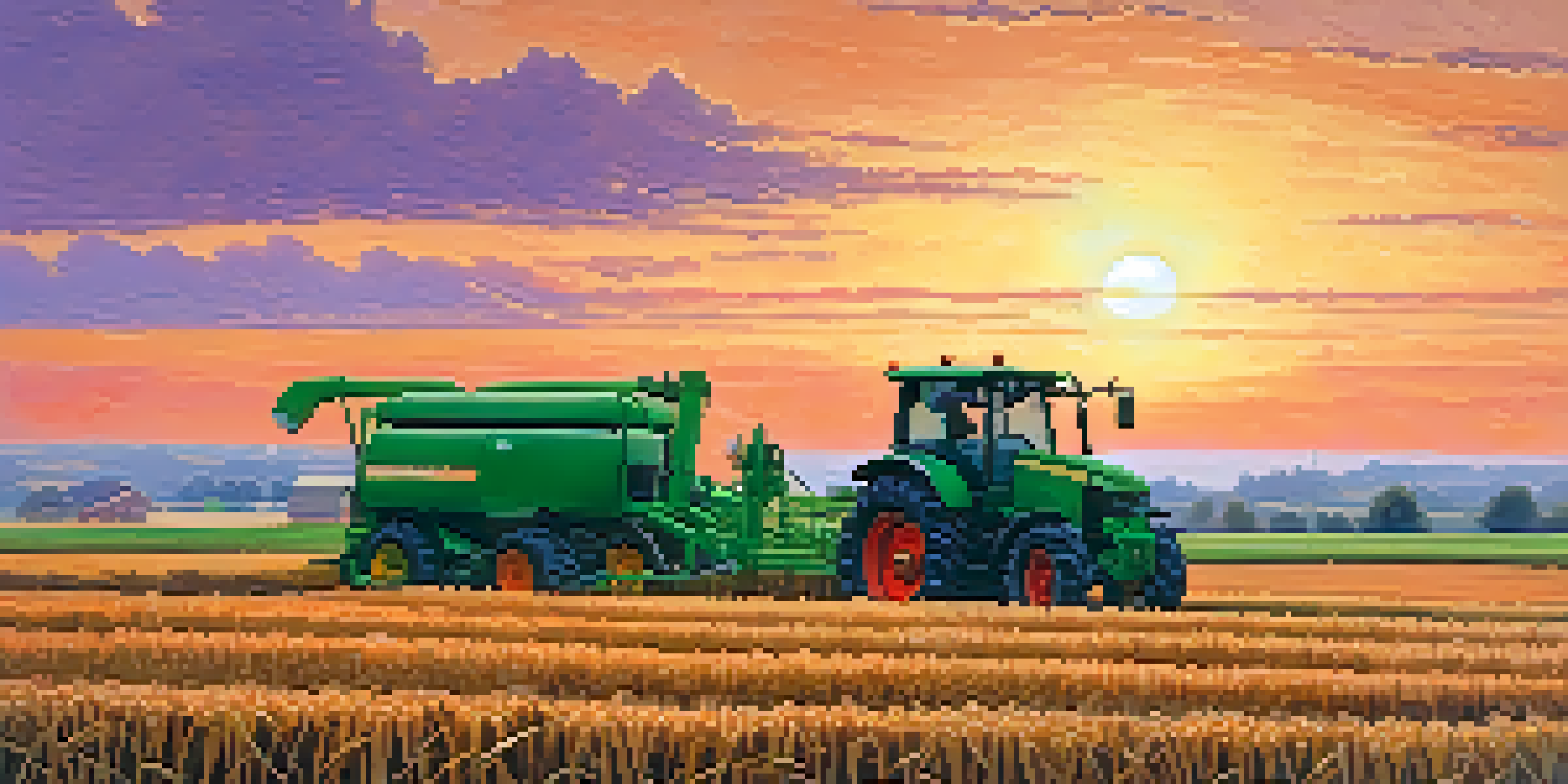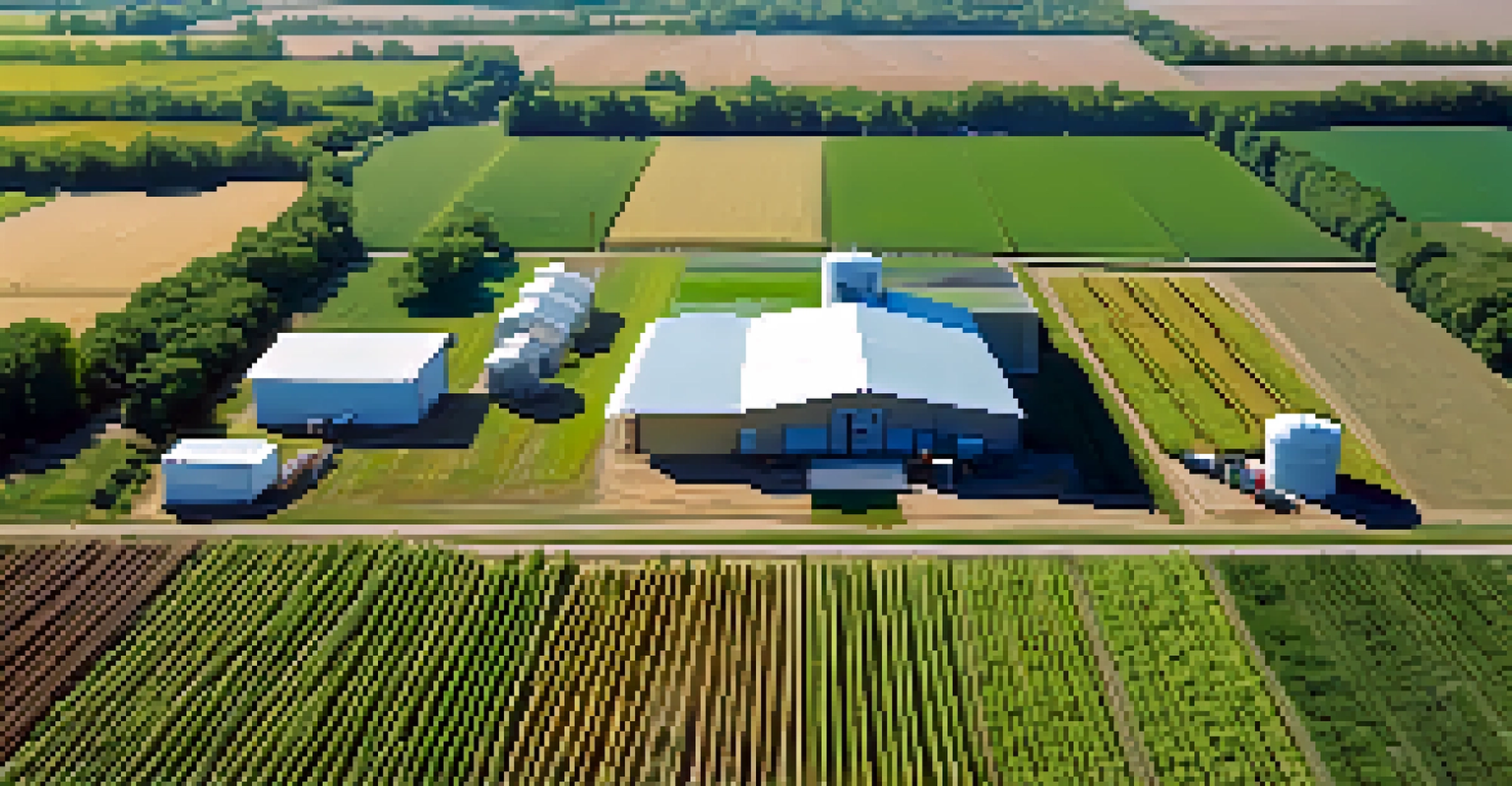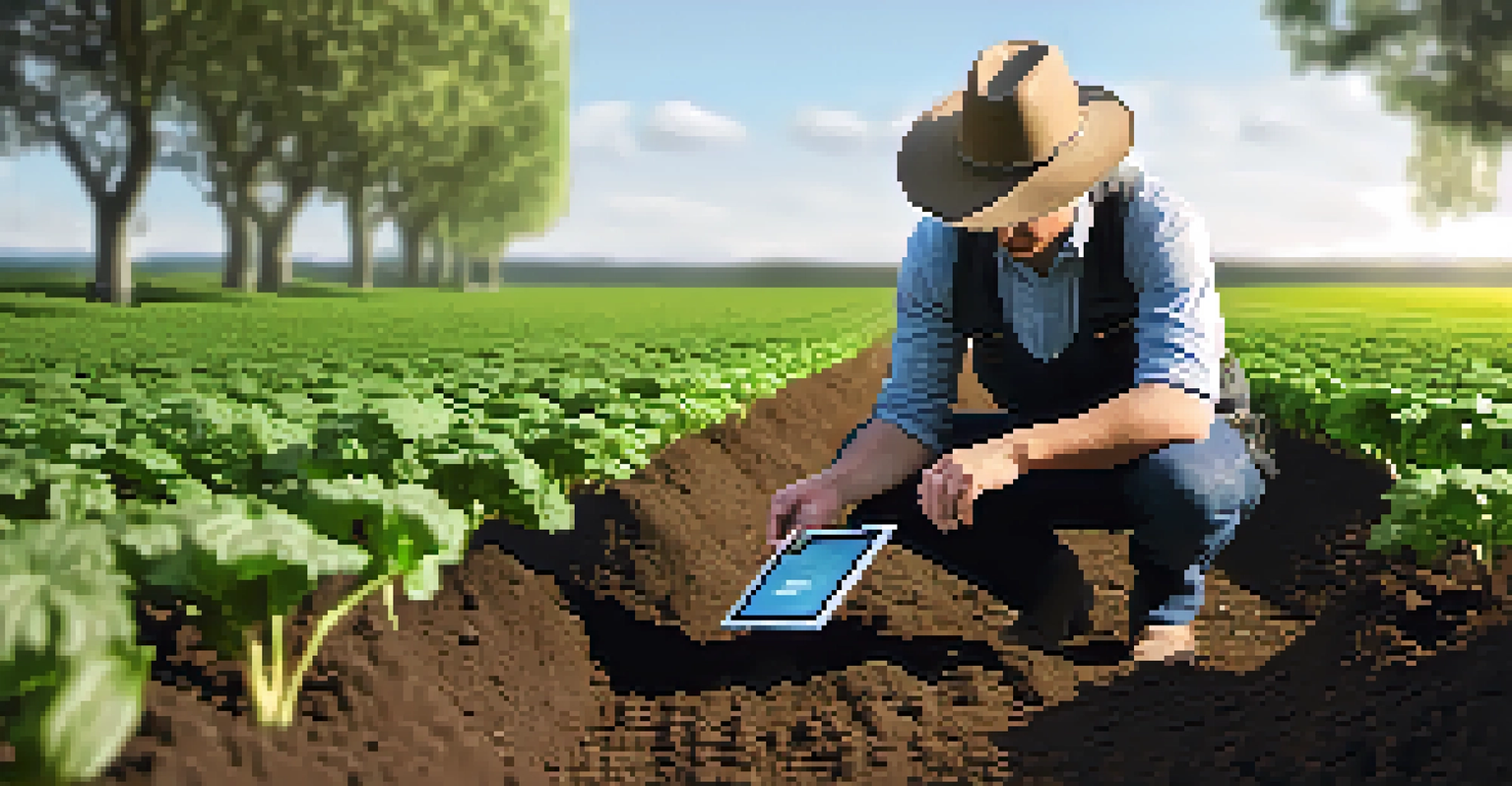The Role of Technology in Modern Missouri Agriculture

The Evolution of Agriculture in Missouri
Agriculture in Missouri has come a long way from its early days. Initially, farming relied heavily on manual labor, with farmers using simple tools to cultivate their land. Today, technology has revolutionized the agricultural landscape, enhancing efficiency and productivity.
Agriculture is not just a job; it's a way of life, and technology is helping us shape that life for the better.
This transformation began with the introduction of machinery, which allowed farmers to plant and harvest crops faster than ever before. Over the years, innovations such as tractors and combine harvesters have replaced traditional methods, enabling larger-scale farming operations. As a result, Missouri has become one of the leading agricultural producers in the United States.
However, the journey doesn't stop with machinery. The rise of digital technology has further changed the game, allowing farmers to implement data-driven strategies that optimize their yields. This evolution exemplifies how technology continues to shape the future of agriculture in the state.
Precision Agriculture: A Game Changer
Precision agriculture is one of the most significant advancements in modern farming. This approach utilizes technology such as GPS, drones, and sensors to monitor and manage field variability in crops. Farmers can now make informed decisions about planting, watering, and fertilizing, leading to increased efficiency and reduced waste.

For instance, a farmer can use drones to survey fields and identify areas that require more attention or resources. This targeted approach not only saves time but also minimizes the environmental impact by ensuring that inputs are used precisely where needed. Farmers are now able to balance productivity with sustainability.
Tech Revolutionizes Missouri Farming
The evolution of agriculture in Missouri showcases how technology has transformed farming practices, enhancing efficiency and productivity.
In Missouri, many farmers have embraced precision agriculture, leading to higher crop yields and better resource management. As this technology becomes more accessible, it is likely to play an even more crucial role in shaping the future of agriculture in the region.
The Role of Data Analytics in Farming
Data analytics has emerged as a powerful tool in modern agriculture, enabling farmers to make decisions based on real-time information. By analyzing data from various sources, including weather patterns and soil conditions, farmers can predict trends and adjust their practices accordingly. This proactive approach helps mitigate risks and improve overall productivity.
The future of farming lies in the integration of technology and sustainable practices, ensuring we can feed the world while protecting our planet.
For example, a farmer might analyze historical yield data alongside current weather forecasts to determine the best time to plant crops. This data-driven decision-making process can lead to significant improvements in yield and efficiency. Additionally, by leveraging technology, farmers can identify potential issues before they escalate, resulting in better management of resources.
In Missouri, the integration of data analytics into agricultural practices has allowed farmers to stay competitive and adapt to changing market demands. As technology continues to evolve, the role of data in farming will only become more prominent.
Automation and Robotics in the Fields
Automation and robotics are making waves in the agricultural sector, offering solutions that reduce labor costs and increase efficiency. From automated tractors to robotic harvesters, these technologies enable farmers to streamline their operations and focus on other critical aspects of their business. This shift not only saves time but also enhances precision in agricultural practices.
For instance, robotic machines can harvest crops more quickly and accurately than human laborers. This is especially beneficial during peak harvesting seasons when labor shortages can severely impact productivity. As a result, many Missouri farmers are investing in these technologies to remain competitive in the ever-evolving agricultural landscape.
Data-Driven Decisions Enhance Yields
Farmers in Missouri leverage data analytics and precision agriculture to make informed decisions that optimize crop management and resource use.
While some may worry about the impact of automation on jobs, it's important to remember that these technologies often lead to new opportunities in other areas. Farmers can focus on management, innovation, and sustainability, ensuring the future of agriculture remains bright in Missouri.
Sustainable Practices Powered by Technology
Sustainability is becoming increasingly important in agriculture, and technology is paving the way for more eco-friendly practices. Advanced tools and techniques allow farmers to reduce their carbon footprint while still meeting the demands of a growing population. This shift towards sustainability is vital for the health of our planet and future generations.
For example, precision irrigation systems help conserve water by delivering it directly to the plant roots, minimizing waste. Additionally, technology allows farmers to monitor soil health, ensuring they make informed decisions about crop rotation and nutrient management. These practices promote soil fertility and reduce the need for chemical fertilizers, leading to healthier ecosystems.
In Missouri, many farmers are embracing sustainable practices powered by technology, contributing to a more resilient agricultural sector. By prioritizing sustainability, they not only enhance their operations but also support the well-being of their communities and the environment.
The Interconnection of Farmers and Consumers
Technology is bridging the gap between farmers and consumers, fostering a more transparent food system. With the rise of direct-to-consumer platforms and social media, farmers can share their stories and connect with customers like never before. This connection not only builds trust but also allows consumers to make informed choices about their food.
For instance, many Missouri farmers now use social media to showcase their farming practices and engage with their community. By sharing behind-the-scenes looks at their operations, they foster a deeper appreciation for the work that goes into producing food. This engagement can lead to increased sales and support for local agriculture.
Sustainability Through Innovation
As technology advances, Missouri farmers are adopting sustainable practices that reduce environmental impact while meeting growing food demands.
Moreover, technology has enabled farmers to participate in online marketplaces, allowing them to reach a broader audience. This interconnection is transforming the way food is produced, marketed, and consumed in Missouri, creating a more sustainable and resilient food system.
Challenges and Considerations in AgTech Adoption
While the benefits of technology in agriculture are clear, there are also challenges that farmers face when adopting these innovations. High costs, lack of training, and resistance to change can hinder the integration of new technologies into farming practices. It's essential for farmers to weigh these factors carefully before making significant investments.
For example, while precision agriculture technologies can lead to substantial savings in the long run, the initial costs of equipment and training can be daunting. Farmers may need to seek out grants or financial assistance programs to help offset these expenses. Additionally, the learning curve associated with new technologies can be steep, requiring time and effort to master.

Despite these challenges, many Missouri farmers are finding ways to overcome obstacles and embrace technology. By collaborating with industry experts and participating in training programs, they can successfully integrate innovative solutions into their operations, ensuring they remain competitive in a rapidly changing agricultural landscape.
The Future of Technology in Missouri Agriculture
Looking ahead, the role of technology in Missouri agriculture is set to expand even further. As innovations continue to emerge, farmers will have access to even more tools that can enhance their productivity and sustainability. The future of farming is bright, with technology playing a pivotal role in shaping the industry.
Emerging technologies such as artificial intelligence and machine learning promise to revolutionize agricultural practices even more. These advancements can provide insights into crop management, pest control, and resource optimization, enabling farmers to make data-driven decisions that enhance their operations.
As Missouri farmers continue to adapt to these changes, the agricultural landscape will evolve to meet the needs of a growing population. By embracing technology and fostering innovation, the state can ensure a prosperous future for its agricultural sector, benefiting both farmers and consumers alike.